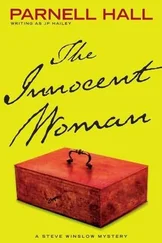‘No.’
‘Maybe you should eat something then.’
‘I’m not hungry.’
‘Have you actually been throwing up?’
‘Not really.’
When she opened a tin of processed meat, he shut his eyes and turned to face the wall.
He slept for a while.
When he woke he lay on the divan watching Irina undress; her pale yellowish skin, her elegant shoulders – she was proud of her shoulders – the folded plumpness of her belly, the fine somewhat scant hair pressed flat by her underwear. It struck him as sad that watching her he experienced no more than a vague, wavering desire. He knew that there were many men – Lieutenant Morozov, who lived downstairs, for one – who would envy his lying there, watching Irina undress in the twilight; for whom it would be an exciting, almost a fantastical experience. Quite possibly, Morozov was lying downstairs imagining it at that very moment – hearing through his open window the same sounds that Aleksandr was hearing (the donkey cart passing outside in the street, the whisper of the wheels, the quick tapping of the little hooves) – and imagining with a sort of yearning pain what Aleksandr was actually seeing. And seeing it, he experienced only this vague, wavering desire, which seemed little more than the memory of a former desire. If he had wanted to he might have stood up and taken two steps through the twilight and touched her – touched her hips, her thighs, her lips – as Morozov so painfully longed to, and never would. Her lingering there seemed a sort of invitation. Though his pulse had quickened perceptibly, however, he did not move.
And in fact Irina did not seem aware that he was watching her. Moving quickly and efficiently, she wrapped her hair up in a stiff towel, took off her watch, and shouldered on her dressing-gown. Then she went, and in the sudden stillness he saw the soap, still where she had left it by the door – presumably so that she would not forget it – and wondered whether to take it to her. He was about to do this, or had decided that he should, when the door opened impatiently and she snatched it herself.
He had fallen into a light sleep and was woken by the sound of the door shutting. It was nightfall. He felt feverish, and hoped only that he would sleep until morning. He was sweating under the single sheet. Irina lit the special little oil-lamp that was supposed to ward off mosquitoes. Her hair was loose, making a wet patch on her dressing gown. She stepped out of her slippers and went to the window, where there was still some pale light, and started to brush her hair.
When she had finished she sat down on the divan. Feeling the pressure of her weight on the old springs, he opened his eyes. It was almost dark. She was looking down at him.
‘What?’ he murmured.
‘How are you feeling?’ She smelled of soap, was still warm from her bath.
He shook his head.
‘You’ll feel better tomorrow.’
Her dressing gown was loosely tied and from where he lay he was able to see the pale profile of her left breast inside it. He put out his hand and touched it, felt the infinite softness of its tip in his palm. She turned slightly from the waist to move it towards him. Eventually he withdrew his hand, and shut his eyes, and she leaned over and kissed him.
Though he then fell asleep, he did not sleep through to the morning. He fell asleep while she smoked a cigarette sitting in the not-quite-night. There had been something peaceful about that – the tiny sounds of her smoking, the scent of the smoke itself – and imagining the tumbling rush of the water through the sluice gates of the Plotinka, he had slipped quietly into sleep.
When first aware, some hours later, that he was awake, he did not open his eyes or move his limbs from where they were. He stayed perfectly still. However he was too hot. The sheet was wet with his sweat. The frogs were singing in the street. He hoped it was almost morning. It was midnight.
WE WAITED FOR Lozovsky in an old Pobeda in the shade of some trees on the edge of the Rastorguyev-Kharitonov Park. He would have to pass through the park on his way to the station. We expected him at one o’clock. When he still wasn’t there at two, I sent Voronin to find out what was happening. ‘Are you alright?’ I said, turning in my seat to face him. He nodded, fiddling with a wet handkerchief. ‘Should you be smoking?’
‘S’alright …’ He sneezed.
‘Why do you keep sneezing?’
‘It’s the p –’ he said, into another sneeze. ‘It’s the pollen. These trees …’
‘I want you to find a phone and find out what’s happened to Lozovsky.’
‘A phone?’
‘Yes.’
‘Where?’
‘I don’t know. Find one.’
‘What should I say?’
‘Just find out what’s happened to him, whether he’s left. Maybe he stayed for lunch. I don’t know.’
Voronin wandered off down the street.
I was starting to worry. Lozovsky was supposed to have spent the morning in meetings at the oblispolkom. No mention would have been made of Yudin. He would have talked small talk with the health service managers, Gasselblat and his ilk, perhaps eaten a plain lunch, and left. And if he had been nervous when he arrived in Sverdlovsk the previous evening – it was his first visit to town since his refusal to sign the form – the way in which everything passed off normally would surely have made him feel more secure, probably more secure than he had felt for weeks. So where was he? Had we missed him somehow? An hour earlier, I had been nervous about seeing him – it was an unfortunate, unpleasant situation. Now I just wanted him to show up. And I was not well. When I looked at the park it seemed to seethe. I scanned the slope on the far side for Afanasyev. When Lozovsky showed up, Afanasyev was supposed to speak to him, to say that he knew him. (He was about Lozovsky’s age, though still a lieutenant.) He was then supposed to walk him towards the place where the Pobeda was parked in the shade. When they were near, Ivanov and Voronin would get out. However Afanasyev seemed to have fallen asleep. ‘I think Afanasyev’s fallen asleep,’ I said. Ivanov was standing next to the car in his shirtsleeves, smoking a cigarette. I was about to tell him to go over there and wake him, when Afanasyev sat up. For a few moments he looked around as though wondering where he was. Then he slowly got to his feet. He looked at his watch. ‘What’s he doing?’ I said.
We watched as Afanasyev started to walk away. He was walking towards the trees, where there was a little tea shop, the Orangery, in an old Palladian pavilion. Minutes passed. I waited with my eyes on the point where Afanasyev had vanished into the shade under the trees. In my feverish state, I felt the situation slipping away from me. Finally I said to Ivanov, ‘Wait here. I’ll be back in a minute.’
I took Afanasyev’s attitude personally – he was twelve years older than I was, and seemed to feel this entitled him to ignore my orders. Though I felt light-headed, I started to jog through the shade under the trees, towards the sun-dappled façade of the Orangery. In front of it there was a small formal garden, and there, in spite of everything, I was struck by the fact that in one of the parterres the gardeners had made a portrait of the First Secretary of the party out of plants, entirely in shades of green. It was extraordinarily well done. I was still staring at it when I noticed that something unusual seemed to be happening in the Orangery. People were standing in the entrance, trying to see inside. I told them to move, and went in. There were many more people inside, in the strange, creamy light. In spite of this, it was very quiet. ‘What is it?’ I said. ‘What’s the matter? What’s happened?’ At first there was silence, then someone said, ‘It was a heart attack.’ And someone else: ‘No, not a heart attack.’
Читать дальше












